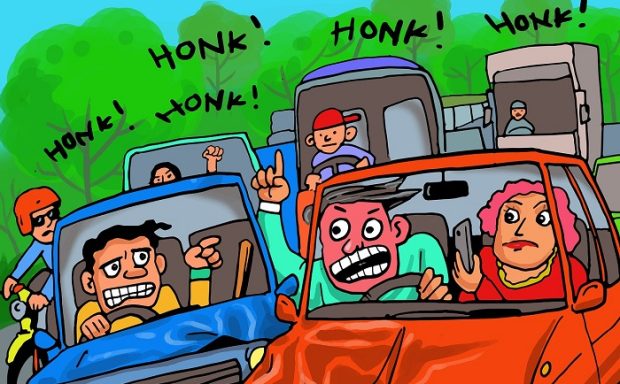Road rage is a phenomenon that is becoming increasingly common in our society, especially with the increase in traffic congestion and driving distances. This behavior, characterized by aggressive driving and a disregard for traffic laws and safety, can have serious consequences for all road users. In this article, we’ll explore what road rage is, why it’s on the rise, and what it means for your future road trips.
What is Road Rage?
Road rage is defined as aggressive driving behavior that is motivated by anger and frustration. It can take many forms, including tailgating, cutting off other drivers, honking the horn excessively, making obscene gestures, and even physical confrontations. In extreme cases, road rage can lead to dangerous driving behaviors like high-speed chases, ramming other vehicles, and even violence.
Why is Road Rage on the Rise?
There are several factors that contribute to the increase in road rage incidents. One of the primary drivers is the increase in traffic congestion. With more people on the road and longer commute times, drivers are spending more time in their vehicles and experiencing more frustration and stress.
Another factor is the rise in distracted driving. With the proliferation of smartphones and other digital devices, drivers are becoming increasingly distracted while behind the wheel. This can lead to frustration and anger, especially when they are cut off or held up by a distracted driver.
Additionally, our fast-paced and high-stress lives can contribute to road rage. People may take out their stress and anger on other drivers when they are feeling overwhelmed or stressed. In some cases, road rage may also be a symptom of causal mental health problems like anxiety or depression.
What Does Road Rage Mean for Your Future Road Trips?
The increase in road rage incidents has significant implications for the safety and enjoyment of your future road. There are few things to keep in mind:
- Increased Risk of Accidents: Road rage can lead to dangerous driving behaviors, which can increase the risk of accidents. For example, a driver who is tailgating or cutting off other vehicles may cause a collision. In addition, road rage incidents can escalate quickly and turn violent, putting all road users at risk.
- Decreased Enjoyment of Your Trip: Road rage can be stressful and make your road trip less enjoyable. It can be difficult to shake off the anger and frustration and continue on your journey.
- Legal Consequences: Road rage is a criminal offense and can result in fines, license suspension, or even jail time. If you are involved in a road rage incident, you could face serious legal consequences.
How to Avoid Road Rage While on a Road Trip?
While it may be impossible to avoid road rage incidents completely, there are steps you can take to minimize your risk of becoming a victim or perpetrator of road rage. Here are a few tips:
- Plan Your Trip: Plan your trip in advance to avoid heavy traffic and peak driving times. Take your time to reach your destination, and consider taking breaks to avoid fatigue and stress.
- Avoid Distracted Driving: Put your phone away and focus on the road. Avoid using your phone for texting, browsing the internet, or using GPS while driving. If you want to use phone, stop on a safe location before using it.
- Stay Calm: If you feel yourself becoming angry or frustrated while driving, take a deep breath and try to stay calm. Avoid engaging in aggressive driving behaviors and keep your focus on the road.
- Avoid Confrontations: If you are confronted by a road rage driver, do not engage in a confrontation.

